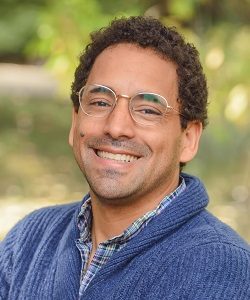If you claim to support an idea, and then have the opportunity to implement it, would you?
According to research led by Dr. Demis Glasford, the answer depends on how much the idea-in-action affects you.
A 2022 study in Glasford’s Inspire Lab at John Jay College of Criminal Justice presented participants with a hypothetical situation in which their child attended an elite school. Participants then received a proposal to integrate the school with students from a working-class neighborhood with predominantly people of color. Liberals and conservatives reported differences in their principles, but when asked if they would support the proposed integration, both tended to prefer keeping the school the way it was. Privileged liberals more highly reported principles of reducing inequality compared to conservatives but showed no major differences in behavior compared to conservatives. That is, both groups opposed integration when they had a personal stake.

Glasford’s research of this disparity between principles and action – particularly among privileged liberals – has looked at topics related to social inequality, like affirmative action, schooling, homelessness, and gentrification. Glasford, who joined the UW-Madison Psychology faculty in the fall of 2022, will lead research on intergroup relations, social change, and the experiences of racial, ethnic and religious minority groups.
“A fundamental assumption of the way I approach intergroup relations is this idea that people sometimes are living in very distinct realities, not just from what they read, but from their experience, from the power that they have,” Glasford says. “So when you bring them together, they may disagree, but sometimes the way they’re actually seeing the same thing is fundamentally different.”
Glasford came to UW-Madison in part because of the interdisciplinary approach to research and the work done in applied contexts.
“Dr. Glasford brings a powerfully multidisciplinary and creative approach to the study of injustice, particularly racial injustice,” UW-Madison psychology professor and former department chair Craig Berridge says. “His research helps to better understand the social factors that inhibit or motivate action against injustice, with the goal to better rectify injustice in society. He is also an outstanding educator and mentor who is committed to rigorous and inclusive education of our students. We feel very fortunate to have recruited him to our campus.”
Glasford’s research often studies social injustice and takes place in both the lab and applied settings in communities.
“The more you can get out of the university system, the more you expand who can be involved; that allows you to get different types of experiences which are really critical to understanding the problem,” Glasford says.
Glasford is interested in further researching the incentive structures and situational factors that lead to justice-focused behavior.
“Even if we think we ‘like the person’ or we’d expect that they’re going to do the ‘right thing,’ whatever that is for your particular group or how you think about inequality, that research suggests you should have more of an evidence-based approach to evaluating whether they’re doing what they said they were going to do,” Glasford says.
Glasford first got involved in research as an undergraduate student through the Ronald E. McNair Scholars Program, a federally funded program for first-generation students and underrepresented students that aims to increase representation in graduate school programs. His research looked at the stereotyping of Black males and what happens when white people try to suppress these stereotypes.
“Being in that program, having the opportunity to think about a question and do research that I felt was relevant to the experiences I’ve had or how I had been treated, [it opened the door to the idea] that there’s more that you can do in terms of research,” Glasford says.
Glasford encourages students who feel their experiences are not represented in research to get involved in labs.
“I think that there’s a lot of people whose voices are not represented in research and science, and I think it’s really critical that we bring these people to the table to participate in the science of understanding human behavior,” Glasford says. “If you’re someone who looks at what’s going on in your classes and says, ‘that doesn’t represent me, this doesn’t represent my family, our experiences,’ if you’re willing, you should try to get involved.”
Glasford plans to accept students to join his INSPIRE Lab in the fall of 2023.
Written by Sara Stanislawski